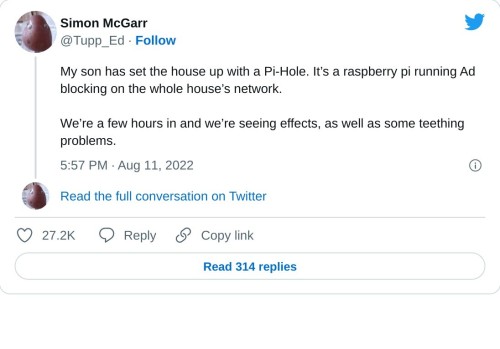Disease Acquired
disease acquired

More Posts from Silver-griffincat and Others

the African wild cat (from which house cats are descended) looks like a normal house cat but with uncomfortably longer legs
Cat colors genes masterpost
I copied all my descriptions from the cat color gene tournament here, with pictures and all. I often type out the genotypes, so this is a guide to what each letter means. Under the cut because it's very long.
Disclaimer: Sometimes I don't use the most common designations of a gene or an allele, and I'd like to apologize to everyone who's bothered by this. I have a very good reason for it: I like it better my way.
Genetics guide
Agouti (agouti signaling protein gene, ASIP): this gene determines whether the individual hairs will be banded or not.
dominant allele: A - banded hairs, tabby cat (wild type)
recessive allele: a - no bands, solid cat (variant)

A_ means if there's already an A allele, the other one can be either A or a.
A homozygous recessive cat with wild type alleles on every other gene will be solid black. Combined with other allele variants the a allele can produce other solid colors, different types of smokes and several more.
Actually there are more "secret" alleles for this gene: the agouti alleles of the asian leopard cat and other wild feline species. In certain hybrid breeds, most notably bengals, there's even a special coloration called charcoal born from the combination of the domestic cat's solid and the asian leopard cat's agouti allele.
Ticked (dickkopf wnt signaling pathway inhibitor 4, DKK4): this gene determines if there is any full-colored hairs, or only banded.
dominant allele(s - researchers found at least two): Ti - only banded hairs, ticked tabby cat (variant)
recessive allele: ti - some hairs don't have bands, "patterned" tabby cat (wild type)

If this is the only gene with variant allele, we'll have a black ticked tabby [black tabbies are also called brown, and other, mostly breed-specific names]. Ticked tabbies are possible in every color.
Nonagouti covers up the tickedness (this is called recessive epistasis): we won't see what a solid cat's genotype is on this gene. (Except when other genes make it possible. But that's biology for you.)
Spotted (?): this hypothetic gene can break up the tabby pattern's stripes into spots.
dominant allele: Sp - spotted tabby cat (variant)
recessive allele: sp - striped tabby cat (wild type)

Alone the Sp allele makes a black (brown ect) spotted tabby cat; of course, in combinations with other variant alleles, it can produce a wide variety of different colored spotted tabbies.
Both a and Ti covers up the spotted gene: its effect normally only visible on a cat with the A_ titi genotype.
Mackerel [i use the name mackerel since every other gene here is named after the dominant allele] (transmembrane aminopeptidase Q, Taqpep): this gene determines the type of the tabby pattern.
Blotched and classic are synonym terms.
dominant allele: TMc - narrow vertical lines, mackerel tabby cat (wild type)
recessive allele: tbl - wide, swirling lines, blotched or classic tabby cat (variant)

If every other gene is wild type except this, we'll have a black blotched tabby cat, but of course the tbl allele can produce lots of different colored classic tabbies.
All of the previously mentioned genes are able to nullify the effect of this one, so a mackerel or a blotched tabby must have A_ titi spsp genotype.
Additional annoyed remark: Despite the name, the so-called classic pattern is actually both the newer and the less common worldwide. My only guess for why it's named like that: it's the more common one in England. Well, thanks. (That's why I actually prefer the name blotched over classic.)
Brown (tyrosinase-related protein-1, TYRP1): this gene determines the quantity of the functional eumelanin.
dominant allele: B - full pigment production, black cat (wild type)
"middle" allele: b - less pigment, chocolate cat (variant)
recessive allele: bl- even less pigment, cinnamon cat (variant)
Order of dominance: B > b > bl

If every other allele is wild type except this, we'll have a chocolate or cinnamon mackerel tabby cat. (On the picture the cinnamon cat is spotted rather than striped, because i couldn't find a decent mackerel. So sad.) Chocolate and cinnamon cats are possible in every pattern.
Dilute (melanophilin, MLPH): this gene determines the distribution of the pigments.
dominant allele: D - even pigment distribution, dark cat (wild type)
recessive allele: d - clumped, uneven pigment distribution, diluted cat (variant)
black -> blue
chocolate -> lilac
cinnamon -> fawn

In these pictures the difference isn't that striking between the black and the blue mackerel tabby, but if you look up at the header, in solid cats it's much more pronounced.
For further comparison of undiluted and diluted color pairs on one picture (to eliminate differences in lightening):


black vs blue and red vs cream
Every possible color and pattern can be diluted (with the only exception of white).
Orange (?): this yet unidentified gene determines the type of the most prominent pigment: eumelanin on pheomelanin.
allele: O - mainly pheomelanin, red-based cat (variant)
allele: o - mainly eumelanin, black-based cat (wild type)
This gene is special in two related ways: first, it's located on the X chromosome, which means tomcats only have one allele; second, the alleles are codominant - if a cat carries both of them, it'll show both phenotypes: this is how we get tortoiseshell cats. This explains why almost all tortoiseshell cats are females - every tortie needs two different X chromosomes.

Combined with other variant alleles every possible color and pattern can occure as tortoiseshell, but the O allele is epistatic over a lot of genes: for example agouti (the phenotype of every orange cat is tabby, even the genetically solid ones) and brown (since eumelanin is mostly absent thus can't change - the genotypes OO B_, OO b_and OO blbl all mean red cat).
The dilute version of red is called cream.
The dilution level is always the same in the colors of a tortoiseshell: the undiluted black, chocolate and cinnamon is paired with red, the diluted blue, lilac and fawn are paired with cream.
White (receptor tyrosine kinase, KIT): this gene determines the size of the area the pigment producing cells (the melanocytes) reach.
dominant allele: W - basically no melanocytes, white cat (variant)
allele(s): ws - limited area is covered, white-spotted cat (variant)
allele: w - all of the body is covered by the melanocytes, full-colored cat (wild type)
recessive allele: wg - only the paws remain white, gloved cat (variant)
Order of dominance: W > ws = w > wg

Since the gloving allele is kind of specific to the breed, I used a birman cat to illustrate it.
Lots of alleles here! Actually I'm not sure what's the most accepted opinion about them, but since these variant are all mapped to KIT, I considered them alleles.
If every other gene shows the wild type except for this, we'll have a white, or a white-spotted black mackerel tabby cat, but thanks to the ws allele(s) every color and pattern can be combined with white patches. However, the W allele is epistatic over every other gene: if a cat has one or two copies of W, it will be white regardless everything else.
ws is interesting: it has an additive effect, a cat with the wsws genotype will have more white than a cat with only one copy of it.
wg is fully recessive: the gloved phenotype only present if the cat's genotype is wgwg.
Color restriction (tyrosinase, TYR): mutations on this gene will result in temperature-sensitivity in the pigment production, the cats will be lighter on the warm and darker on the cooler areas of their bodies.
dominant allele: C - regular pigment production, full colored cat (wild type)
allele: cb - moderately reduced pigment production: burmese color restriction, sepia cat (variant)
allele: cm - reduced pigment production, bangkok color restriction, mocha cat (variant)
allele: cs - highly reduced pigment production: siamese color restriction, pointed cat (variant)
recessive allele: c - no pigment production, albino cat (variant)
Dominance order: C > cb = cm = cs > c
Now this group is a lot. Not only five different alleles (mocha was found relatively recently in Thailand), but the middle three are all intermediate with each other meaning that actually we have eight different phenotypes (illustration from messybeast; full color and albino are absent):

I used solid cats for illustration, because in the thai breed (the cats i used belong to this) they are often preferred over tabbies, so it's easier to find pictures; also, it's much more simple to compare them.
(Photos from The Thai Cat Center and Bangkok Mocha Cat, and Pangur from @pangur-and-grim as an albino cat)

Please note that all of these varieties are very changeable; the pictures (especially those of the heterozygotes) are far from representing all cats carrying the respective genotypes.
Alone these variants makes some type of a black (seal) mackerel tabby point cat, but every type of color restriction can occure together with all possible colors and patterns.
***The color restriction gene won the Cat Color Gene Tournament!***
Inhibitor (?): this unidentified gene reduces the pheomelanin production, thus removes the warm tones of the fur (the hairs have white-black banding instead of yellow-black).
dominant allele: I - reduced pheomelanin, cooler toned cat (variant)
recessive allele: i - normal pheomelanin, warmer toned cat (wild type)

If every other allele is wild type except for this, we'll have a black silver mackerel tabby cat. Combined with other alleles it can produce lots of different silver (tabby) and smoke (solid) varieties.
Wide band (?): This hypothetic gene makes the yellow bands on the agouti hairs wider, resulting in a lighter, yellowish pelt. Based on the width of the pale bands we can differentiate between golden (middle band width) and shaded (maximal band width, color is pushed up into the tip).
dominant allele: Wb - reduced area of eumelanin, warmer toned cat (variant)
recessive allele: wb - normal area of eumelanin, cooler toned cat (wild type)

Golden is quite a mess; right now there is one identified gene (found first in siberians), but persians and many more breeds must have different gene(s), based on the interaction with the inhibitor gene (siberian golden + silver = bimetallic, persian golden + silver = silver shaded or chinchilla), and the inheritance patterns (the siberian alleles are recessive, while persian golden appears to be dominant). Since lots of breeds allow golden, and sometimes it can be found even in stray cats, I say who knows what genes and alleles are out there! This is all a hardly understood, very exciting and currently researched area.
If every other gene stays wild type except for this, we'll have a black golden mackerel tabby or a black golden shaded cat. Combined with other alleles it can produce lots of different golden and silver varieties.
Low-grade white (?): Again, hypothetic gene(s). Even with the extreme variability of the white spotting allele(s), the existence of some independently inherited genes is strongly suspected. Their effects most commonly manifest as a white locket: a small white patch on the chest or the belly, and/or a white tail tip. I'm not sure if there is any consensus whether these are more likely to be recessive or dominant alleles.

Dilute modifier (?): This unidentified gene changes the color of a diluted cat, the coloration becomes more brownish.
dominant allele: Dm - (variant)
recessive allele: dm - (wild type)
blue, lilac, fawn -> caramel
cream -> apricot

I put here a cat in all three diluted colors to compare them with the caramel tabby. It's hard to spot the differences, isn't it?
Since this is a dilute modifier, the D allele covers it, and we can only see its effect on cats with dd genotype.
It can be found only in a few breeds: orientals (including related breeds), burmese, different rexes. To our current knowledge, of course.
Extension (melanocortin 1 receptor, MC1R): This gene replaces eumelanin with pheomelanin resulting in a yellowish or reddish furred cat. The change often happens gradually during the first years of the cat's life.
dominant allele: E - eumelanin remains, black adjacent cat (wild type)
recessive alleles: e, er, ec - pheomelanin takes over, yellow/red adjacent cat: amber, russet or serdolik (variant)

All three recessive variants are new mutations found recently in different breeds: the color amber in the 1990s in norwegian forest cats, the color russet in 2007 in burmese, and the color carnelian or serdolik in 2018 in kurilian bobtails (at least that's the first mention). We don't know anything about their interactions, or their effects on cats outside of their respective breeds.
The gene only effects eumelanin, so the O allele is epistatic over the it. However, because of the properties of the overpowering pheomelanin, every e allele is epistatic over agouti, so the tabby patterns will show up on aa cats as well.
Wide band (serine peptidase, CORIN): This hypothetic gene makes the yellow bands on the agouti hairs wider, resulting in a lighter, yellowish pelt.
dominant allele: Wb - eumelanin on normal sized area, darker cat (wild type)
recessive alleles: wbSIB, wbeSIB, wbBRI - eumelanin on reduced area, lighter cat (variant)

Ohhh, citizens of tumblr, we're really in it now. So. In the moment, we have, I believe, three mutations found on this gene: the sunshine (wbSIB) and extreme sunshine (wbeSIB) in the siberian breed, and the copper (wbBRI) in british cats. (I only show the sunshine and the copper here.) The novelty of these mutations means that the breeders still often call them simply golden instead of the new names, so it's difficult to find reliable data. Further complicating the situation, most likely both breeds have more wide band gene(s) beyond CORIN, and especially the copper cat above is the result of the combination of several wb genes.
Karpati (?): This unidentified gene makes the extremeties (face, ears, legs, tail) white kinda like a reverse colorpoint cat, and causes a roaning effect: scatters white hairs everywhere on the body.
dominant allele: K - whited extremities, karpati cat (variant)
recessive alleles: k - normal pigmant production, full colored cat (wild type)

Karpati seems to show intermediate inheritance with significantly more white on a homozygous then a heterozygote cat. This gene is studied for a very short time, and mostly on heterozygotes since they are much more common. The cats appearence changes during their life and also with the seasons: they born very similar to a fever coated kitten but with white ears, then to the end of their first year they almost completely lose the white (at least the heterozygous cats - the homozygotes become darker but still keep strange white patterns), then slowly gain it back as they age.
The karpati mutation is present in the stray cat population in middle-east Europe (including Hungary where I live, wahoo! and indeed, I can regularly see one or two karpaties in facebook adoptions groups and such). It's also introduced to some established breeds (LaPerm, Sphynx ect) and the creation of its own breed also began under the Transylvanian name.
this is a welcome distraction, so i might as well do it. also a neat way to compare how unusual my life is.
1: absolutely not
2: don't think i ever said that
3: many things
4: yes, but not in the conventional way
5: single, planning to stay that way
6: fighting
7: fruit yogurt
8: no
9: no
10: like a week ago
11: not romantically
12: yes (please do not try this)
13: multiple people
14: yeah, of course
15: yes
16: sickly
17: no, ew
18: no
19: it depends
20: what does that mean
21: packing stuff and drawing
22: no
23: no
24: biology
25: yes
26: to be able to breathe properly
27: probably not
28: not applicable
29: not applicable
30: my asthma
31: i wouldn't know
32: emerald green
33: probably
34: sonic the hedgehog
35: someone named jasmin
36: maybe
37: secret third option
38: i hope not
39: hasn't happened
40: when i was but a childe
51 (where tf are the missing ones): undecided
52: yes but the reasons can be stupid
53: digital art
54: probably not
55: sometimes
56: at least four
57: nah. but love in general is a true thing.
58: windy with nice clouds and a little rain
59: mostly yes
60: no
61: absolutely not
62: shiny object, watching animals, kindness
63: my legal name, yes
64: yes because they don't exist
65: don't have one
66: obviously not
67: shithead sibling
68: don't remember
69: no
70: maybe
70 horrible questions ... Fuck it
01: Do you have a good relationship with your parents? 02: Who did you last say “I love you” to? 03: Do you regret anything? 04: Are you insecure? 05: What is your relationship status? 06: How do you want to die? 07: What did you last eat? 08: Played any sports? 09: Do you bite your nails? 10: When was your last physical fight? 11: Do you like someone? 12: Have you ever stayed up 48 hours? 13: Do you hate anyone at the moment? 14: Do you miss someone? 15: Have any pets? 16: How exactly are you feeling at the moment? 17: Ever made out in the bathroom? 18: Are you scared of spiders? 19: Would you go back in time if you were given the chance? 20: Where was the last place you snogged someone? 21: What are your plans for this weekend? 22: Do you want to have kids? How many? 23: Do you have piercings? How many? 24: What is/are/were your best subject(s)? 25: Do you miss anyone from your past? 26: What are you craving right now? 27: Have you ever broken someone’s heart? 28: Have you ever been cheated on? 29: Have you made a boyfriend/girlfriend cry? 30: What’s irritating you right now? 31: Does somebody love you? 32: What is your favourite color? 33: Do you have trust issues? 34: Who/what was your last dream about? 35: Who was the last person you cried in front of? 36: Do you give out second chances too easily? 37: Is it easier to forgive or forget? 38: Is this year the best year of your life? 39: How old were you when you had your first kiss? 40: Have you ever walked outside completely naked? 51: Favourite food? 52: Do you believe everything happens for a reason? 53: What is the last thing you did before you went to bed last night? 54: Is cheating ever okay? 55: Are you mean? 56: How many people have you fist fought? 57: Do you believe in true love? 58: Favourite weather? 59: Do you like the snow? 60: Do you wanna get married? 61: Is it cute when a boy/girl calls you baby? 62: What makes you happy? 63: Would you change your name? 64: Would it be hard to kiss the last person you kissed? 65: Your best friend of the opposite sex likes you, what do you do? 66: Do you have a friend of the opposite sex who you can act your complete self around? 67: Who was the last person of the opposite sex you talked to? 68: Who’s the last person you had a deep conversation with? 69: Do you believe in soulmates? 70: Is there anyone you would die for?


Dumpster baby fuzziness update: appears to be sprouting full body white eyelashes. Kinda soft but not that soft??
I've decided to use the term "convenience food" instead of "junk food."
I think it's more honest, and less loaded. It's all food, some of it is more appropriate when you don't have the spoons left for food prep. It takes slightly more energy to peel a banana than to open a bag of chips.
We try to save the convenience food for days when we need something easy, so eat a banana.

>First, we’ve discovered that about a quarter of all the internet connection in or out of the house were ad related. In a few hours, that’s about 10,000 out of 40,000 processed.
>We also discovered that every link on Twitter was blocked. This was solved by whitelisting the https://t.co domain.
>Once out browsing the Web, everything is loading pretty much instantly. It turns out most of that Page Loading malarkey we’ve been accustomed to is related to sites running auctions to sell Ad space to show you before the page loads. All gone now.
>We then found that the Samsung TV (which I really like) is very fond of yapping all about itself to Samsung HQ. All stopped now. No sign of any breakages in its function, so I’m happy enough with that.
>The primary source of distress came from the habitual Lemmings player in the house, who found they could no longer watch ads to build up their in-app gold. A workaround is being considered for this.
>The next ambition is to advance the Ad blocking so that it seamlessly removed YouTube Ads. This is the subject of ongoing research, and tinkering continues. All in all, a very successful experiment.
>Certainly this exceeds my equivalent childhood project of disassembling and assembling our rotary dial telephone. A project whose only utility was finding out how to make the phone ring when nobody was calling.

>Update: All4 on the telly appears not to have any ads any more. Goodbye Arnold Clarke!

>Lemmings problem now solved.
>Can confirm, after small tests, that RTÉ Player ads are now gone and the player on the phone is now just delivering swift, ad free streams at first click.
>Some queries along the lines of “Are you not stealing the internet?” Firstly, this is my network, so I may set it up as I please (or, you know, my son can do it and I can give him a stupid thumbs up in response). But there is a wider question, based on the ads=internet model.
>I’m afraid I passed the You Wouldn’t Download A Car point back when I first installed ad-blocking plug-ins on a browser. But consider my chatty TV. Individual consumer choice is not the method of addressing pervasive commercial surveillance.
>Should I feel morally obliged not to mute the TV when the ads come on? No, this is a standing tension- a clash of interests. But I think my interest in my family not being under intrusive or covert surveillance at home is superior to the ad company’s wish to profile them.


>Aside: 24 hours of Pi Hole stats suggests that Samsung TVs are very chatty. 14,170 chats a day.
>YouTube blocking seems difficult, as the ads usually come from the same domain as the videos. Haven’t tried it, but all of the content can also be delivered from a no-cookies version of the YouTube domain, which doesn’t have the ads. I have asked my son to poke at that idea.

-
 arti-ficer reblogged this · 3 months ago
arti-ficer reblogged this · 3 months ago -
 fishyaudio liked this · 3 months ago
fishyaudio liked this · 3 months ago -
 conconcork reblogged this · 3 months ago
conconcork reblogged this · 3 months ago -
 radagam reblogged this · 10 months ago
radagam reblogged this · 10 months ago -
 radagam liked this · 10 months ago
radagam liked this · 10 months ago -
 anaspiringarsonist liked this · 11 months ago
anaspiringarsonist liked this · 11 months ago -
 sunbeankm liked this · 11 months ago
sunbeankm liked this · 11 months ago -
 criticalhank liked this · 1 year ago
criticalhank liked this · 1 year ago -
 bluefire-axolotl liked this · 1 year ago
bluefire-axolotl liked this · 1 year ago -
 greatrottentask reblogged this · 1 year ago
greatrottentask reblogged this · 1 year ago -
 allium-art liked this · 1 year ago
allium-art liked this · 1 year ago -
 delta-orionis liked this · 1 year ago
delta-orionis liked this · 1 year ago -
 timetodoarson liked this · 1 year ago
timetodoarson liked this · 1 year ago -
 ehhfhhghfjjgjgj liked this · 1 year ago
ehhfhhghfjjgjgj liked this · 1 year ago -
 galestral reblogged this · 1 year ago
galestral reblogged this · 1 year ago -
 coffee-without-anesthetics reblogged this · 1 year ago
coffee-without-anesthetics reblogged this · 1 year ago -
 thealias0 liked this · 1 year ago
thealias0 liked this · 1 year ago -
 cookieeevee liked this · 1 year ago
cookieeevee liked this · 1 year ago -
 areallypleasantperson liked this · 1 year ago
areallypleasantperson liked this · 1 year ago -
 witch-sweets reblogged this · 1 year ago
witch-sweets reblogged this · 1 year ago -
 witch-sweets liked this · 1 year ago
witch-sweets liked this · 1 year ago -
 7kyanitestars liked this · 1 year ago
7kyanitestars liked this · 1 year ago -
 trashcantasch liked this · 1 year ago
trashcantasch liked this · 1 year ago -
 voidsgarden liked this · 1 year ago
voidsgarden liked this · 1 year ago -
 henry-law liked this · 1 year ago
henry-law liked this · 1 year ago -
 wellarentyoujustarayofpitchblack reblogged this · 1 year ago
wellarentyoujustarayofpitchblack reblogged this · 1 year ago -
 wellarentyoujustarayofpitchblack liked this · 1 year ago
wellarentyoujustarayofpitchblack liked this · 1 year ago -
 solarsurvivor-1 liked this · 1 year ago
solarsurvivor-1 liked this · 1 year ago -
 catlovergaming reblogged this · 1 year ago
catlovergaming reblogged this · 1 year ago -
 starrysundae liked this · 1 year ago
starrysundae liked this · 1 year ago -
 kandysongbird liked this · 1 year ago
kandysongbird liked this · 1 year ago -
 klumquat liked this · 1 year ago
klumquat liked this · 1 year ago -
 confettipaws reblogged this · 1 year ago
confettipaws reblogged this · 1 year ago -
 doeskies liked this · 1 year ago
doeskies liked this · 1 year ago -
 entity-st4t1c-404-detected liked this · 1 year ago
entity-st4t1c-404-detected liked this · 1 year ago -
 hooooooooman liked this · 1 year ago
hooooooooman liked this · 1 year ago -
 ro3ert-canada reblogged this · 1 year ago
ro3ert-canada reblogged this · 1 year ago -
 ro3ert-canada liked this · 1 year ago
ro3ert-canada liked this · 1 year ago -
 sunmoli liked this · 1 year ago
sunmoli liked this · 1 year ago -
 midnight0ddity reblogged this · 1 year ago
midnight0ddity reblogged this · 1 year ago -
 seal000 liked this · 1 year ago
seal000 liked this · 1 year ago

-(thee/they/any)- lives on the internet, very invested in multiple games, even ones i can't even get (they generate enrichment in the brain centrifuge) ✨holy trinity of artist, furry and otherkin✨ (notably full of disease and mental illness)
297 posts




